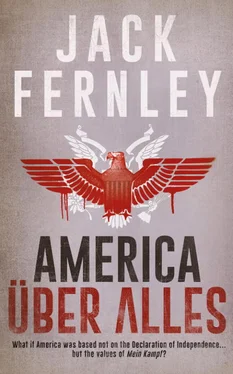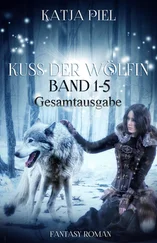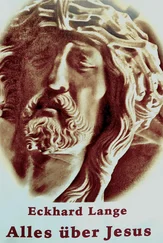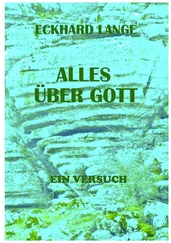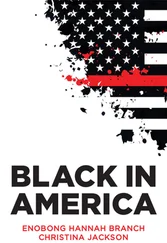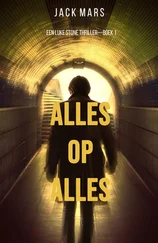Washington stared at the man, not unsympathetic to his pain. But there was only one thought occupying his mind: could he be seen to back down?
As he thought, Henry Knox spoke up: ‘Sir, a man from Jersey came into our camp this past hour. He crossed at Howells Ferry further up river. Our man’s news was that Rall this morning had a local farmer shot, accused of spying. A fresh attachment of Hessians appear to have arrived in the past few days, straight from Europe. My man believes the Redcoats have heard wagons going all night and may have notice of the boats that we have brought down to McKonkey’s. They appear to have information, sir, information regarding our every movement. We have little time before us. If we hesitate for too long, we may be surprised in our camp. Once the ice is formed across the Delaware, Howe will move those Hessian troops, invade Pennsylvania and aim to take Philadelphia. We may not be able to stop him.
‘We must guard against his designs, but how are we to do that? Sir, we must strike and strike fast. On the question of Hand, I agree with you. He has behaved as a fool and should rightly be punished as such. But in war, pragmatism is always the best card a player can be dealt. If our spies are correct – that the town holds significant numbers of Hessian troops, yet remains unfortified – now may be the time for us to launch a surprise attack. But we require the highest quality of evidence. Just as we cannot afford not to make a significant breakthrough at this juncture, equally we can’t afford another disaster. If we send Hand on this mission this evening, we will know by this time tomorrow how likely either scenario is. I would agree with these gentlemen: commute the sentence and send Hand on a journey that may be equal in peril, but far more satisfactory to our ends.’
‘Thank you, General Knox, thank you all. But you are all northerners. I need to understand how this plays with our men from the south.’ Washington fixed his eye on the only commander yet to express an opinion. ‘In the absence of General Lee, I am indebted to you, General Gates, for your thoughts on this matter. How would this play with your Virginians?’
Gates, the English army veteran who had established a plantation in Virginia only a few years earlier, at first maintained his silence. He felt little loyalty to his Virginian troops, in his eyes little more than a godless rabble, incapable of discipline, but he felt even less loyalty to Washington, whose prowess in recent months he had openly started to mock. It was evident to any halfwit that a far more competent general to lead the army in the field was available. He, Horatio Gates, could win this war, could have won this war in a matter of months, but no, he had to play second fiddle to this amateur. Any opportunity to undermine Washington’s leadership was too good to pass on.
‘I am not surprised by General Knox’s interpretation. This camp – as I have often insisted – is riven with Howe’s spies. We continue to create our own misfortune. The men of Virginia will do what I as their commander command them to do. I have little faith in these plans for this proposed attack on Trenton. To my mind, as I have said, it is folly. We should retire at once for the winter to Philly and plan for the spring. By all means send your Hand to Trenton. I would hope that he comes back with certain intelligence that would disabuse you of an attack.’
Washington refused to follow the bait, and simply turned to Hand, and said: ‘You have made an unlikely escape from an early grave.’
The snow had been falling for several hours. The night was bitterly cold and dark, every misstep and fumble reminding Hand and O’Leary how ill-suited their clothes were to this weather. They had crossed the Delaware by boat, rowed by Old Tom who kept the ferry, his face furrowed and turned to leather by fifty-odd years of winter and summer crossings. From there they had made it on foot across farmland, stumbling over frozen, rutted fields, making the most of a weak moonlight and their shared memories of the lay of the land. They walked with their muskets ready, for at every step they expected a British scout.
‘This is a grand adventure you’ve got me into, fella, I don’t think. I should be under cover, dreaming of girls from County Kerry, not freezing my arse off out here. For Christ’s sake!’ He had stumbled over a frozen cart rut, almost falling to his knees.
‘Keep it down, Pat, you’ll have them on top of us before we know it. I’m not going to apologise any more. Besides which, you don’t mean it. You would have done the same for me. Did you get Cromwell out of the camp?’
‘Yes, Sarah took care of that as soon as we saw those Virginians running off to tell their bosses. He should be safely in Philly by now. Lucky sod. Wish I were.’
They spoke no more after that. Moving quietly, their senses attuned to every foreign sound in the muddled darkness. On the edge of a copse they saw it: no more than a silvery flash in the early dawn light, something that might have been nothing, but something that could have been the faint movement of a well-polished inch or so of steel, something to signify immense danger.
They halted.
Slowly they started again and almost immediately stopped. In the dull light, Hand brought his right hand to his temple and discreetly pointed left. O’Leary faintly nodded. And then, suddenly, they were off at speed. Ahead of them a bush erupted in frenzy and there was their game: a man, a soldier, a scout now being scouted.
The chase was on, across bramble and thorn, to the edge of the woods, over extended, gnarled, grasping roots and under low-hanging, fingering branches. The two Irishmen, in a pincer move, gaining on the man heading through the woods and back down towards the river.
O’Leary was closer and he took the decision to bring the man to ground. Throwing himself over a thorn bush, he flew through the air at the man’s midriff. The two fell heavily to the ground. But O’Leary had no grip on the man, who fought to free himself cleanly, kicking the other in the forehead. A powerful kick. A well-heeled boot.
Hand ran closer to them, the opponent now free of O’Leary and on his feet once more, finding his way along a little-travelled path, but a path, nevertheless, that brought him quickly to the end of the woods, and running along the edge of the buffs. He was running north, towards the town. He had to be stopped.
Hand was just a few inches from the man. He would have felt the hot breath of the Irishman on his neck before he felt the heavy weight of his body, knocking his legs from him. They stumbled to the ground together. The pursued, screaming out at the top of his voice in an accent Hand could not decipher, but took to be German, scrambled to his feet, disorientated.
Hand also got to his feet and saw in the breaking light that in his disorientation, the man was teetering on the very edge of the bluff, at its highest point above the river. Without knowing where he was, the man turned and stepped out on to the blank canvas of the drop. Hand moved quickly and with no little luck, was able to grab the collar of the man’s jacket. But the force of the man’s fall pulled Hand to the ground and he lay on the edge of the rock face, his right arm over the precipice holding on to the collar, the man dangling above the icy waters of the Delaware.
There was something odd about this jacket. It was neither a Redcoat nor the blue coat of the Hessian, let alone the calico smock of a scout. A grey-green jacket, shorter than the usual military cut, with pockets on the buttoned tunic. The man was struggling, which made Hand’s hold almost impossible, even as he added his left hand to the jacket collar.
‘Stop your kicking and struggling, otherwise I won’t be able to hold you! Stop it, damn it!’
Читать дальше
